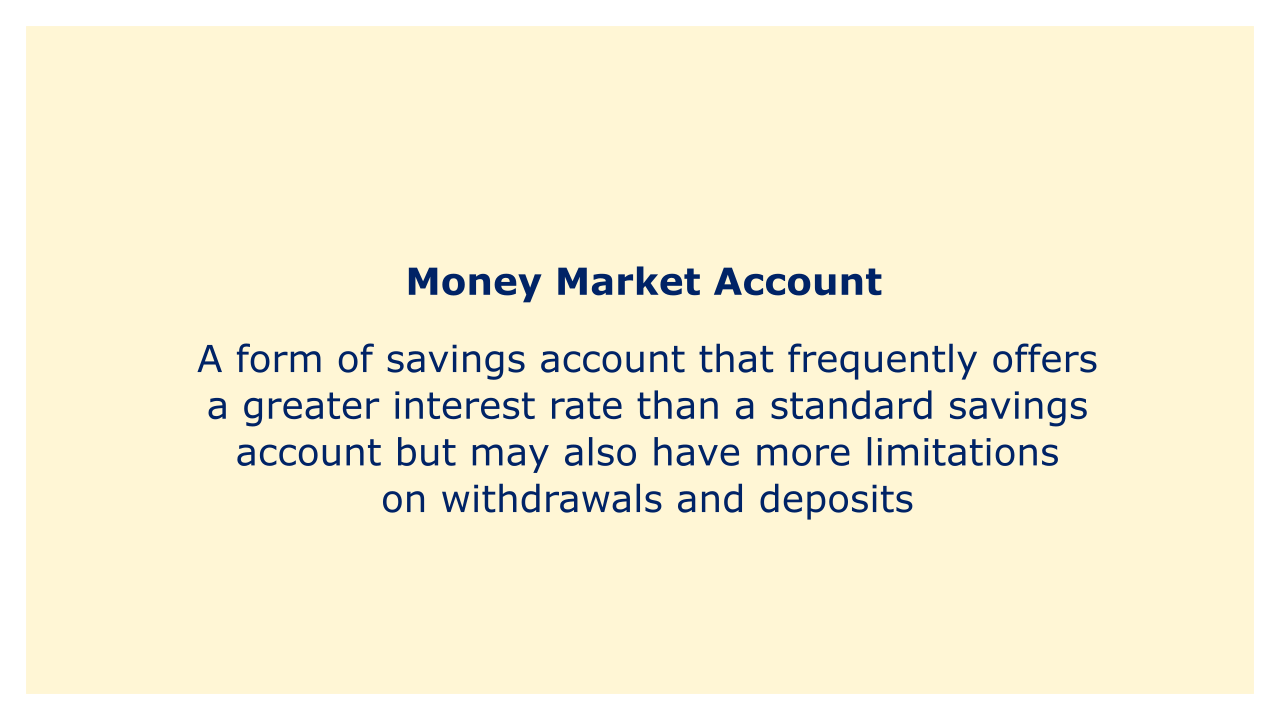 |
| Image: Moneybestpal.com |
A money market account is a form of savings account that frequently offers a greater interest rate than a standard savings account but may also have more limitations on withdrawals and deposits. Banks, credit unions, and other financial institutions provide money market accounts, which are created to offer a secure and practical location to store cash reserves while earning a meager return.
Similar to typical savings accounts, money market accounts are insured by the Federal Deposit Insurance Corporation (FDIC) up to a specific amount (currently $250,000 per depositor per institution), making them a relatively low-risk investment alternative. Money market accounts, on the other hand, frequently have higher minimum balance requirements to open and maintain the account, as well as the potential for fines or penalties if the minimum balance is not met or transaction limits are exceeded.
A money market account's interest rate is often changeable and may be linked to the current market interest rates. The interest rates on money market accounts are typically greater than those on regular savings accounts, but they are typically lower than those on other short-term assets like Treasury bills or certificates of deposit (CDs). A money market account's interest earnings are typically compounded daily and credited to the account once a month.
In comparison to other investment options, money market accounts have a lot of benefits. They offer a high level of liquidity, making it simple to withdraw money or move it to other accounts as necessary. They still offer FDIC insurance protection while giving a better rate of return than conventional savings accounts. Money market accounts, however, might not be the best option for all investors, particularly those looking for better returns or more freedom in how they can access their money.
